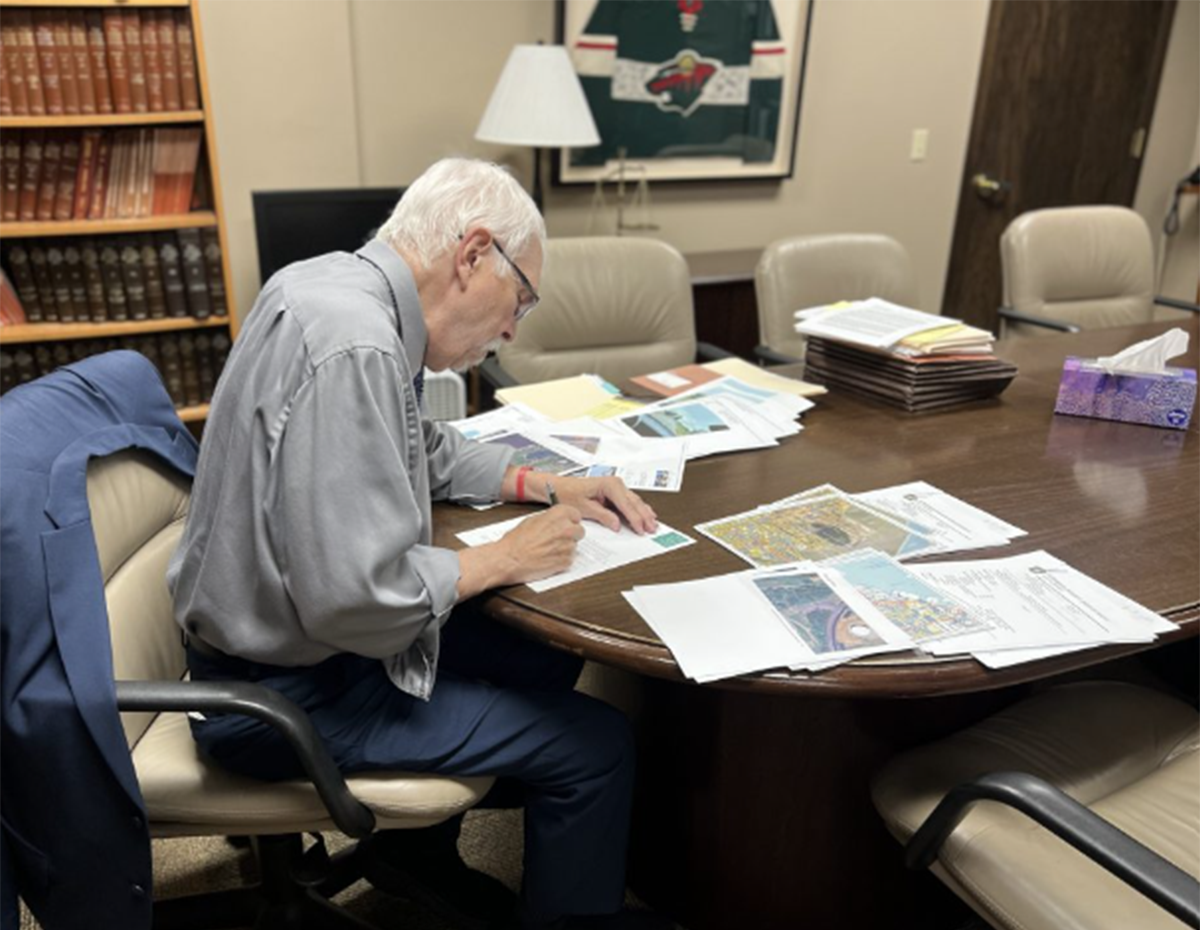President Bush’s new plan to commit the United States to a long-term human and robotic program that would include exploration of the moon and Mars has raised some questions about the feasibility of such an endeavor.
“It is dangerous to pursue an expensive new venture when the country has a large federal budget deficit,” said Lauren Likkel, associate professor of physics and astronomy.
| “It is also important to ask ‘Why should NASA go to ‘X?'” –Paul Thomas Physics professor |
Robotic missions are planned for 2008 and extended missions involving humans for 2015. By 2020, there are hopes for some sort of human presence on the moon, according to Bush’s Jan. 14 speech.
NASA estimates that missions to the moon and Mars could cost at least $170 billion.
NASA receives $15 billion in federal funds annually, according to the organization’s budget. This is less than 1 percent of the federal budget.
In comparison, $401.7 billion is budgeted for the Department of Defense’s 2005 fiscal year. In his speech, Bush asked for an extra $1 billion a year for the next five years to aide in this endeavor.
The cost of these missions could be much greater than NASA’s estimate, said Paul Thomas, professor of physics and astronomy.
“The International Space Station (since it was put to commission in the late 1990s) has cost $100 billion thus far and with it we have less capability than (Russian space station) Mir (in terms of research),” he said.
The ISS is not scheduled to be completed until 2010, Thomas said.
If this is an indicator of cost effectiveness, it is not impossible for the cost to be a lot higher, he said.
“The money is not there,” he said.
It is important to look beyond simply having a destination in mind for the program, Thomas said.
He added, “It is also important to ask ‘Why should NASA go to ‘X?'”.
Senior Amanda Kowalsky said she sees space exploration necessary for learning about the universe, but she was pensive about manned missions.
“I would need to understand why,” she said, agreeing with Thomas.
Not determining the reason for a mission will result in a waste of money on an insensible space program, Thomas said.
To illustrate this, he referenced the current status of the ISS.
“We needed a space station because we needed a place for the space shuttle to go,” he said.
There is no clear reason for having the ISS, Thomas said.
“None of this has anything to do with a sensible space program,” he said.
The idea of the new space initiative is exciting, Likkel said, but she is concerned about how effective it will be scientifically.
She recalled a time when former President George H.W. Bush suggested a similar proposal in 1989.
“The high cost of the venture prevented it from being pursued,” he said.
Thomas said despite budget issues the space exploration initiative would open up an opportunity for humankind to learn more about Earth.
The time frame for the plans will not be short, which is a good thing, Thomas said.
The space race of the 1960s was based on short-term goals, Thomas said, and to echo that could lead to bad decision-making.
“We need long-term goals in space,” he said. “If the public are to buy into this use of tax money, then the honest thing to do is explain what the goals are.”






